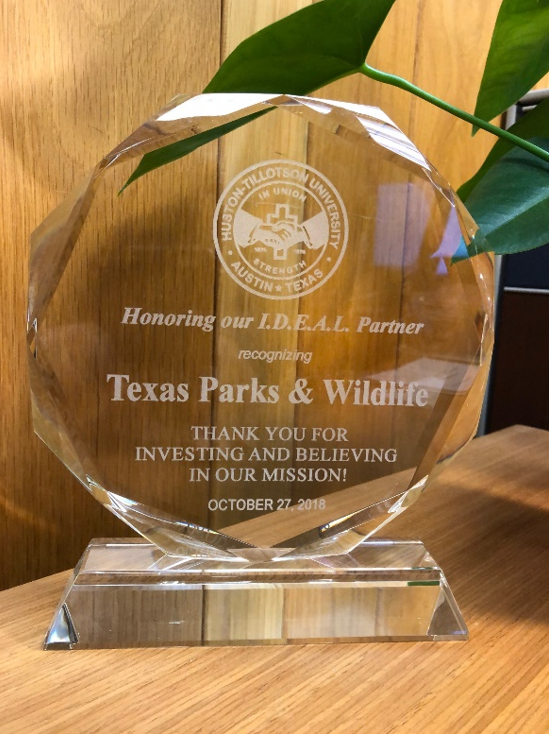Commission Agenda Item No. 1
Presenter:
David Buggs
Briefing
Non-Traditional University Partnerships
May 22, 2019
I. Executive Summary: Taking action to promote workforce diversity and inclusion has become increasingly important to the sustainability of the Texas Parks and Wildlife Department (TPWD), Texas citizens, and the economy. The Wildlife Division, in cooperation with the Human Resources Division and the Chief Diversity and Inclusion Officer, has developed a strategic effort to increase the representation of women and people of color in conservation and related careers by developing an inclusive recruitment strategy and creating partnerships with predominately minority-serving universities to leverage existing university programs and curriculum to fulfill a variety of existing TPWD job qualification requirements.
II. Discussion: According to Lila Valencia, a senior demographer with the Texas Demographic Center, Texas has led the nation in population increases every year since 2006. Texas is also the second largest state in population with an estimated total population of over 29 million people. Another important factor is that Texas has been a majority-minority population state for over ten years. As TPWD strives to sustain its efforts to positively steward the state’s natural resources and serve its growing population, it must fully engage all the citizens of Texas.
So that the TPWD workforce better reflects and engages the demographics it serves, a strategic plan has been developed which includes partnering with universities whose populations are predominately women and people of color. The initial non-traditional partnership was established with Sul Ross State University in 2017. Guided by Wildlife Division senior management and the Chief Diversity and Inclusion Officer, TPWD was able to review the university’s natural resource-related curriculum and work with the school’s science department to secure an instructor capable of teaching courses deemed necessary to meet the TPWD Wildlife Division’s strategic job requirements. In 2018, TPWD developed a second partnership with Huston-Tillotson University, and that school was also able to secure an additional science instructor capable of teaching courses that fulfill necessary strategic Wildlife Biologist job requirements. The Wildlife Division’s senior management also secured Pittman-Robertson funds from the U.S. Fish and Wildlife Service, which allows both universities to execute research projects, an important part of student development and a necessary qualification for Wildlife Biologists.
In addition to developing partnerships with diversity-serving universities in natural resource science, TPWD has established memorandums of understanding (MOU) with Prairie View A&M University and Hardin-Simmons University, and there is potential to establish one with Texas Southern University. Each MOU has as its focus creating opportunities for outdoor recreation skills certification. TPWD’s recruitment team has done an outstanding job connecting with various departments at each of the universities, sharing information on non-science careers at TPWD in fields such as law enforcement, information technology, accounting, and communications, among others.
TPWD’s goal is to increase the amount of diversity in the TPWD prospective employee pipeline by 15 percent within the next four years. The agency’s non-traditional partnership efforts were shared during the 2018 Association of Fish and Wildlife Agencies and Southeastern Association of Fish and Wildlife Agencies conferences, and TPWD’s methods are becoming models for other state agencies. In October of 2018, Huston-Tillotson University publicly recognized TPWD with the I.D.E.A.L. Partner Award for TPWD’s partnership and outstanding support of the university’s student population.
Commission Agenda Item No. 1
Exhibit A
I.D.E.A.L. Partner Award
